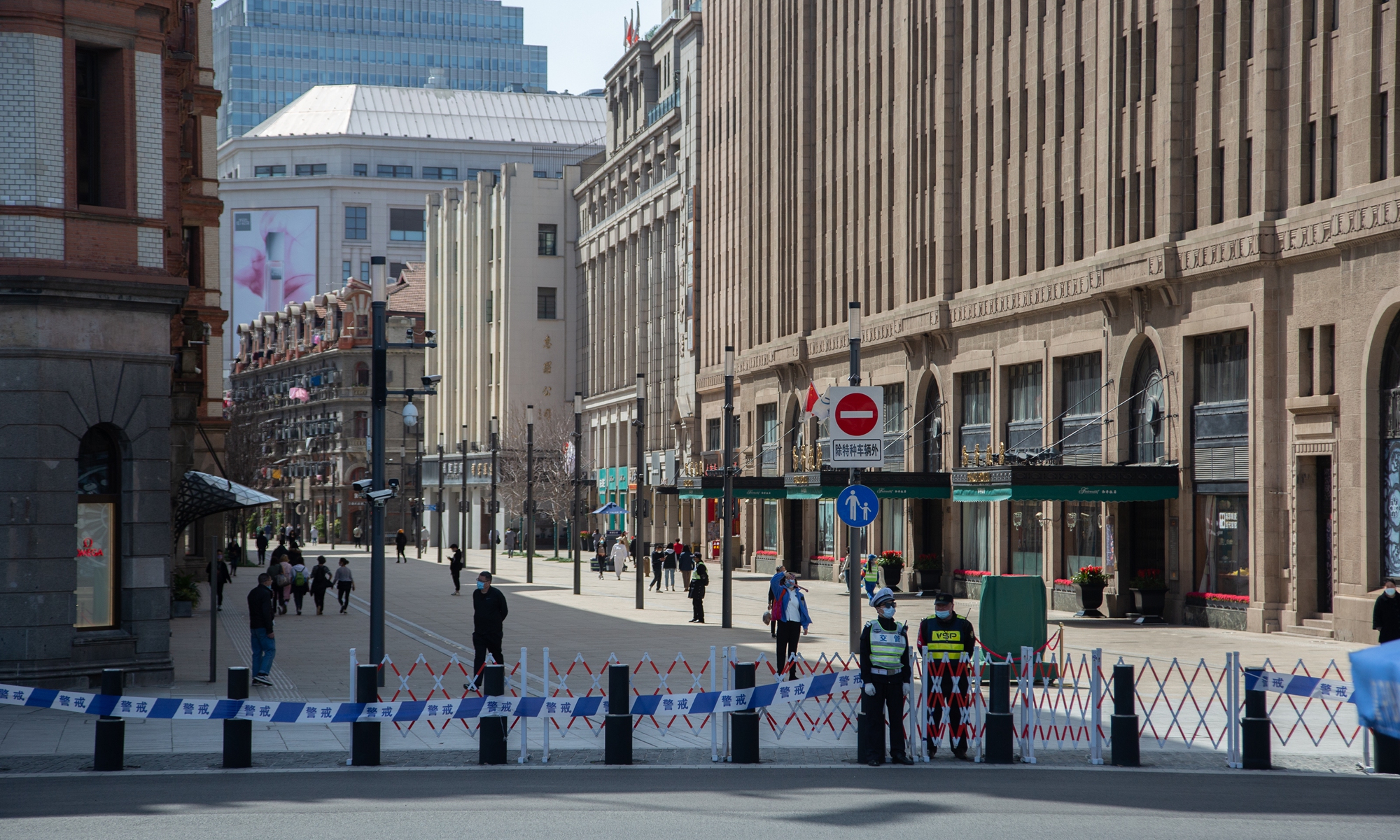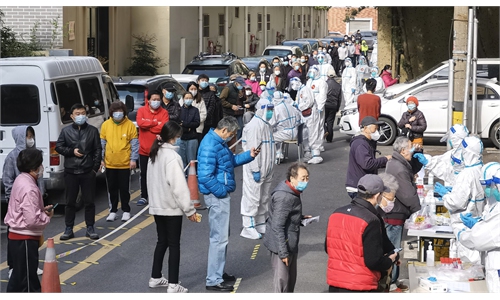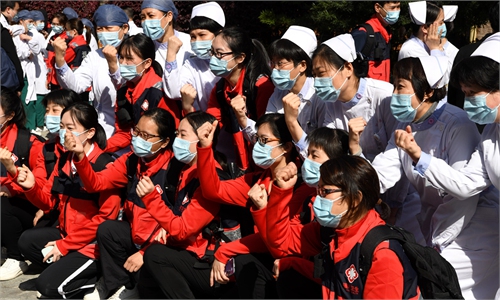COVID-devastated Shanghai could clean up cases in the community in as soon as 10 days: CDC chief epidemiologist

Only a few people walk along the normally bustling Nanjing Road pedestrian street in Shanghai on March 29, 2022 as the city battles an ongoing COVID-19 outbreak. Photo: Wu Chuanhua/Global Times
For a mega city of 27 million people, if one round of city-wide nucleic acid testing is completed in two to three days and up to four consecutive rounds follow closely, the outbreak could be cleared at the community level in as soon as 10 to 15 days, Wu Zunyou, chief epidemiologist of the Chinese Center for Disease Control and Prevention, said on Thursday commenting on Shanghai's most arduous fight against COVID-19 as the tally of local cases exceeded 100,000.
Shanghai recorded nearly 20,000 infections on Wednesday, breaking the record of the highest daily increase of any provincial-level region in the country since the epidemic broke out in 2020.
As many began to worry whether the situation can be brought under control in Shanghai and other parts of China, Wu expressed his faith in China's "dynamic-zero" strategy in curbing the virus on his Weibo account.
To realize this target, the chief epidemiologist said that for Shanghai and Northeast China's Jilin Province, where the epidemic is particularly serious, they must take "profound actions" to strengthen every detail in the prevention and control measures, cut off the transmission chain, and reverse the situation.
Other regions with infections should step up control measures to prevent a large-scale flareup and for those without any reported infections, they should improve epidemic monitoring and curb any potential outbreaks at an early stage.
The ongoing surge in Shanghai's daily cases of COVID-19 came as a large number accumulated infections were detected by the mass nucleic acid testing in a short time, Wu noted.
Shanghai faces very severe situation with a large number of infections detected in a short period of time that are scattered across more than 200 blocks in the city, which led to widespread transmission in communities.
The need of medical treatment for confirmed cases and quarantine management to close contacts is far beyond the capacity of the local health care system. A quick control of the virus under such circumstances is very challenging, according to the epidemiologist.



